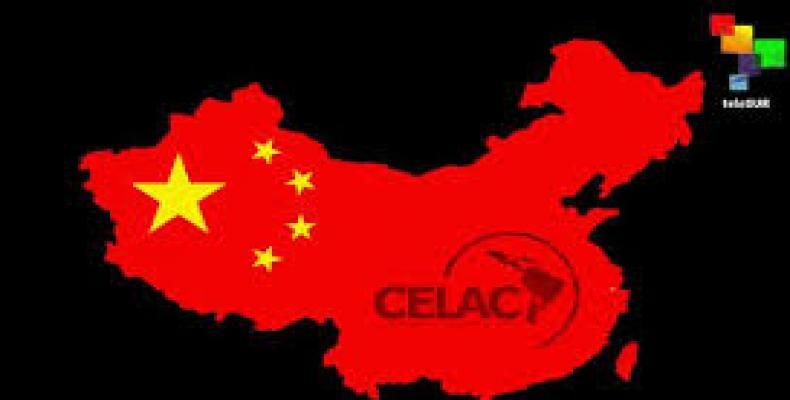China and CELAC –the Community of Latin American and Caribbean States-- have always been able, on the basis of mutual respect, to have an open a space for dialogue which allows multiple opportunities to develop as well as many challenges to face.
Since the Second Summit of CELAC, held in Havana in January 2014, it was decided to advance further on strengthening of links with the Asian giant. Both sides have worked to consolidate a strategic alliance aimed at increasing the social and economic condition of both our regions.
Thus, in January this year, this alliance held its First Ministerial Forum, which approved a plan of action for a five year period, which aims to stimulate and expand mutual cooperation and investment.
In November 2014, trade between China and CELAC reached over Two Hundred and Forty Billion Dollars, a One point Five percent increase over the same period the year before.
The agreement reached at the meeting is especially important because while China will not stop promoting trade it will take into account the particular development needs of each of the thirty three CARICOM members.
This context provided the background for the First Forum of CHINA- CARICOM Political Parties, which just concluded in Beijing.
The meeting issued a final declaration in which it vows to promote the fields of innovation, science and technology.
The political leaders of the member nations agreed to give a new thrust to ongoing structural reforms aimed at achieving sustainable development and inclusive economic and social growth.
This mechanism for dialogue, to be activated at specific intervals, will become an enabling platform to expand exchanges and foster integral cooperation between China and Celac.
Another important aspect of this partnership is the fact that it is not only orientated at increasing trade between both regions while increasing quality of life, but it is especially focused on the promotion of peace and international security.
China and CELAC are making history and have set a standard for international relations by being able to work together while respecting the diversity of each nation and jointly striving to end the unjust international economic order set by the traditional Western powers.


